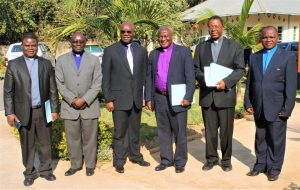Being financially useless in Zambia is a challenging and unsettling experience that can have serious implications on an individual’s well-being and livelihood. In a country where poverty rates are high and access to economic opportunities is limited, being financially useless can lead to a downward spiral of financial insecurity and desperation. This essay will explore the consequences of being financially useless in Zambia, as well as potential solutions to break free from this cycle.
One of the major consequences of being financially useless in Zambia is the inability to meet basic needs such as food, shelter, and healthcare. According to a report by the World Bank, 54.4% of Zambia’s population lives in poverty, with many struggling to afford even the most basic necessities. Without a steady source of income, individuals who are financially useless in Zambia may find themselves relying on charity or government assistance to survive, which can erode their sense of dignity and self-worth.
Furthermore, being financially useless can also impact an individual’s mental and emotional well-being. A study conducted by the Zambia Mental Health Survey found that poverty and financial stress are major contributing factors to mental health issues such as depression and anxiety. The constant worry about not being able to provide for oneself or one’s family can take a toll on a person’s mental health, leading to feelings of hopelessness and despair.
In addition to the personal consequences, being financially useless in Zambia can also have wider societal implications. A lack of financial resources can limit an individual’s ability to contribute to their community and participate in economic activities, perpetuating a cycle of poverty and inequality. This can have ripple effects on the overall development of the country, hindering progress and prosperity for all.
However, there are potential solutions to break free from the cycle of financial uselessness in Zambia. One approach is to invest in education and skills training programs that can empower individuals to secure gainful employment and improve their financial literacy. Organizations such as the Zambia Institute of Marketing offer courses and certifications in marketing, sales, and business management that can equip individuals with the skills they need to succeed in the job market.
Another solution is to promote entrepreneurship and small business development to create opportunities for individuals to generate their own income. The Zambian government has established programs such as the Citizen Economic Empowerment Commission (CEEC) to provide funding and support to small and medium-sized enterprises, helping to stimulate economic growth and create employment opportunities.
In conclusion, being financially useless in Zambia is a significant challenge that can have far-reaching consequences on an individual’s well-being and the overall development of the country. By investing in education, skills training, and entrepreneurship, we can empower individuals to break free from the cycle of poverty and build a brighter future for themselves and their communities. It is essential that we work together to create a more inclusive and prosperous society where everyone has the opportunity to thrive financially.
References:
1. World Bank. (2020). Poverty headcount ratio at national poverty lines (% of population). Retrieved from https://data.worldbank.org/indicator/SI.POV.NAHC?locations=ZM
2. Zambia Mental Health Survey (2017). Mental health problems and poverty in Zambia. Available at https://www.who.int/mental_health/povertyandmentalhealth_zambia.pdf
3. Citizen Economic Empowerment Commission. (2021). About Us. Retrieved from https://ceec.org.zm/
Financial Uselessness in Zambia
- Advertisement -











